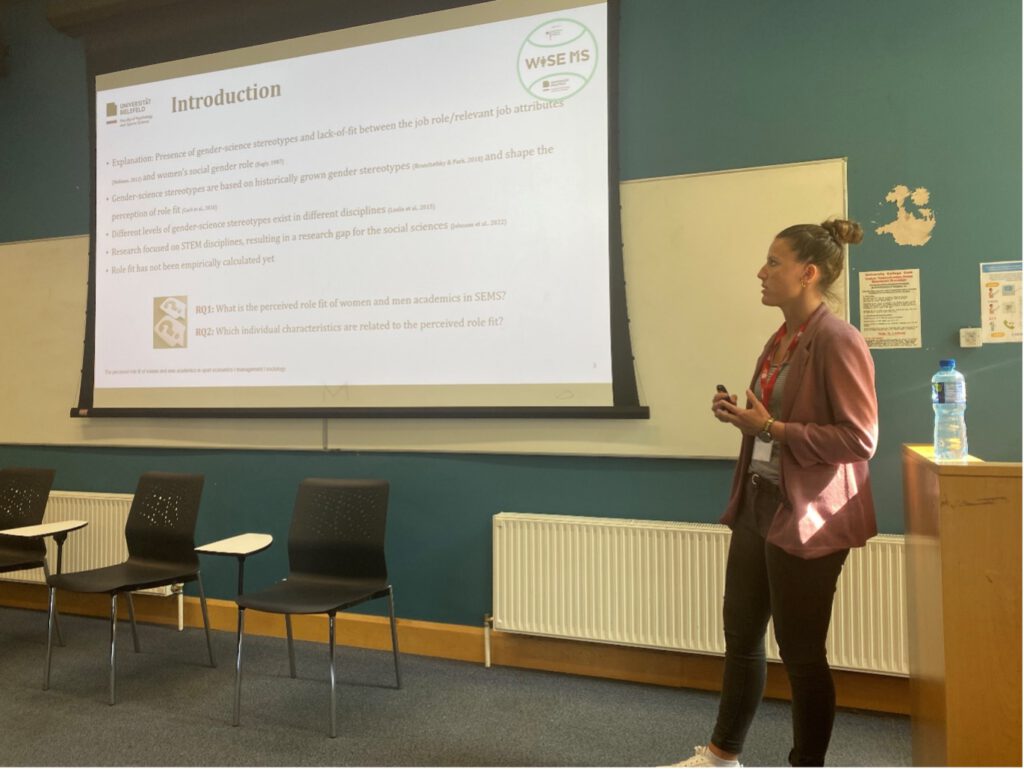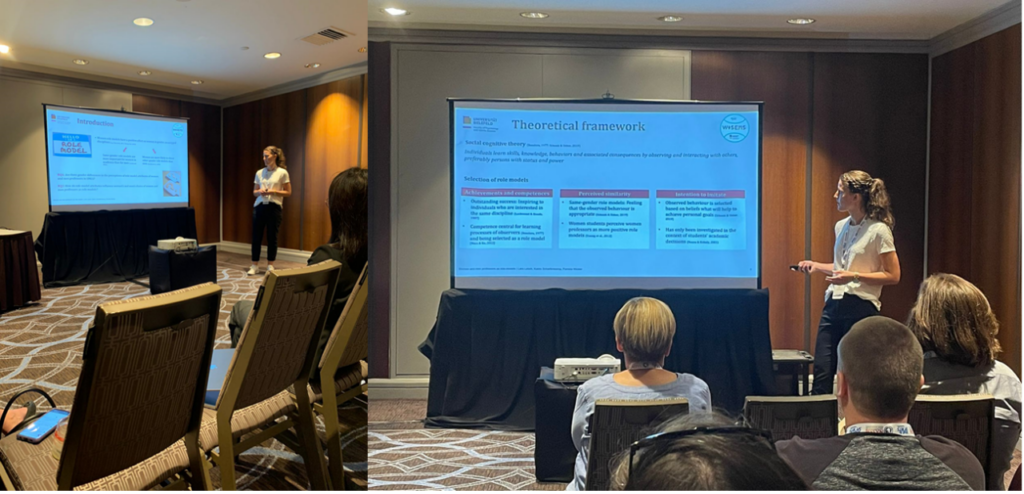23.08.-25.08.2023
Presentation at the conference of the European Sport Economics Association (ESEA)
in Cork, Ireland:
‘The Perceived Role Fit of Women and Men Academics: Gender Stereotypes in Sport Economics?’

Lara Lesch presented results of the project’s online surveys (Modules 1 and 2). The results reveal that individuals in sports economics perceive a higher leadership fit for men academics than individuals in sport management and sport sociology. Interestingly, individuals who work or study in sport management perceive a significant lower total role fit for both women and men academics.
Related to the career stage, undergraduate and graduate students were found to perceive a higher general role fit for both women and men academics than individuals in later career stages. Likewise, individuals in early career stages are more to perceive a higher role fit for men academics in the dimensions of leadership and research topics.
Furthermore, the perception of role fit seems to be gendered: Women perceive a smaller difference between women and men academics’ total role fit, a significant lower total role fit for men academics as well as a lower role fit for men academics in the dimensions of leadership and research methods. Similarly, men perceive a higher role fit for men academics.
In addition, having a man professor as role model leads to a higher perceived total role fit for men academics. Respondents with a woman role model indicate a significant lower total role fit difference between women and men academics, and a higher leadership role fit for women academics.
Compared to Germany, individuals who study or work in Canada perceive a higher total role fit for women and a significant lower difference between the role fit of men and women academics. For the role fit dimensions, respondents from the United States perceive a higher role fit for both women and men academics in the research topics dimension than respondents from Germany. Likewise, respondents from the United States perceive a higher role fit for men academics in the same dimension.
The presentation is uploaded here.
31.05.-03.06.2023
Presentation at the annual conference of the North American Society for Sport Management (NASSM) in Montreal, Canada:
‘Women and Men Professors as Role Models in Sport Management’

Lara Lesch presented first results of the project’s online surveys (Modules 1 and 2). The results reveal that women professors’ competence, teaching/supervision and presentation skills are rated significantly higher by women than by men respondents. By contrast, men respondents rated women professors’ skills to generate income from grants significantly higher than women respondents. Moreover, men evaluate women professors significantly more well-known than women. Women respondents ascribe leadership qualities and moral/ethical behavior significantly more to women professors than men respondents do. Men respondents rate the moral/ethical behavior of men professors higher than women.
Further, the results reveal that countable research output tends to be attributed to men, while women professors seem to be marginalized as teachers. Women professors are perceived more controversially than men professor. Interestingly, women chose their role models based on what they think they can learn, while men also include the perceived similarity in their role model selection process. For career objectives, (more) women and men role models are important for women, while only same-gender role models are related to men’s career development.
The presentation is uploaded here.


